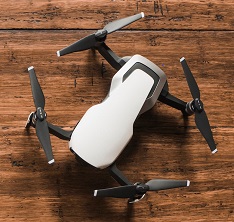Current use cases for drones often involve a remote human operator and/or an environment which is inaccessible to humans. Social drones, which we define as autonomous drones that operate in close proximity to human users or bystanders, are distinct from these. The design of social drones, in terms of both aesthetics and behavior, can involve particular human factors that require further study. Currently, in lieu of empirical studies with autonomous embodied agents, approaches such as Wizard of Oz methods, questionnaires, videos, and/or makeshift mechanisms are often employed to investigate interactions with social drones. For empirical design research using embodied, co-located drones, we have been developing an experimental setup that enables high precision drone control, as well as rich multimodal data collection and analysis, in an integrated fashion. We present this apparatus and its rationale in this paper. Using this setup, we aim to advance our understanding of the psychology and ergonomics of interacting with autonomous social drones through experiments, and extract design implications.
By author > Baytaş Mehmet AydınIntegrated Apparatus for Empirical Studies with Embodied Autonomous Social Drones
1 : Koç University
2 : Qualisys AB
3 : University of New South Wales [Sydney]
4 : RMIT University [Melbourne]
5 : Chalmers University of Technology [Göteborg]
|



